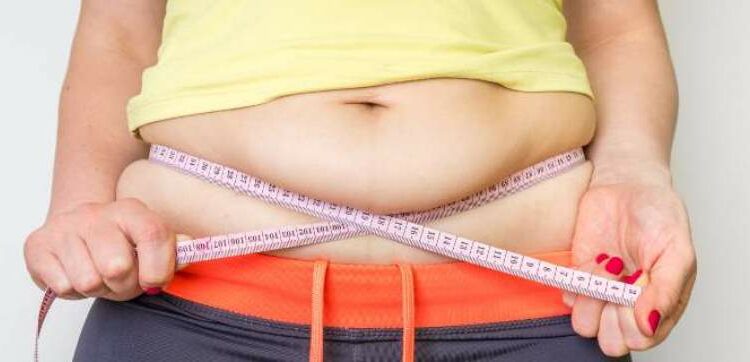Το μεγάλο ερώτημα για κάθε τέτοια δίαιτα είναι ένα: λειτουργεί; Οι περισσότεροι στοχεύουν σε γρήγορη -μερικές φορές δραματική- απώλεια βάρους, μόνο και μόνο για να ξαναρχίσουν να παίρνουν τα χαμένα κιλά στο τέλος της δίαιτας.
Το πιο ανησυχητικό είναι ότι πολλές δίαιτες που γίνονται ξαφνικές “μόδες” βασίζονται σε ακραία επιστημονικά δεδομένα ή απλά σε… καθόλου επιστημονικά δεδομένα, προβλέποντας πρακτικές διατροφής που είναι ανθυγιεινές και μπορούν να σας κάνουν να αρρωστήσετε.
Η Βρετανική Ένωσης Διαιτητολογίας (British Dietetic Association) υποστηρίζει ότι «δεν υπάρχει καμία θαυματουργή δίαιτα που μπορείτε να ακολουθήσετε χωρίς κάποιο σχετικό κίνδυνο υγείας”.
Μια δίαιτα της “μόδας” είναι συνήθως μια δίαιτα χαμηλών θερμίδων χωρίς ποικιλία τροφών, ή ενός ασυνήθιστου συνδυασμού τροφών.
Όσοι τις ακολουθούν μπορεί να χάσουν βάρος πολύ γρήγορα αρχικά, αλλά σύντομα βαριούνται και επιστρέφουν στις παλιές διατροφικές τους συνήθειες και καταλήγουν να ξαναπαίρνουν τα κιλά και με το παραπάνω.
Δίαιτα: 5 λόγοι για να αποφύγετε τις δίαιτες της “μόδας”
1. Ορισμένες δίαιτες μπορεί να σας κάνουν να αρρωστήσετε
Πολλές δίαιτες, ειδικά οι πολύ απότομες δίαιτες, έχουν ως στόχο τη δραματική μείωση του αριθμού των θερμίδων που καταναλώνετε.
«Οι δίαιτες αυτές σας κάνουν να αισθάνεστε μεγάλη αδιαθεσία και δεν μπορείτε να λειτουργήσετε σωστά», λέει η διαιτολόγος Ursula Arens. «Επειδή είναι θρεπτικά μη ισορροπημένες, μπορεί να οδηγήσουν σε μακροχρόνιες κακές επιπτώσεις στην υγεία», προσθέτει.
2. Ο αποκλεισμός ομάδων τροφών είναι επικίνδυνος
Ορισμένες δίαιτες συνιστούν να κόβετε ορισμένες οικογένειες τροφών, όπως κρέας, ψάρι, σιτάρι ή γαλακτοκομικά προϊόντα.
Αυτό θα μπορούσε να σας εμποδίσει να πάρετε τα θρεπτικά συστατικά και βιταμίνες που χρειάζεται το σώμα σας για να λειτουργήσει σωστά. Είναι εφικτό να χάσετε βάρος χωρίς να κόψετε τρόφιμα από τη διατροφή σας.
3. Οι δίαιτες με χαμηλή περιεκτικότητα σε υδατάνθρακες μπορεί να έχουν υψηλή περιεκτικότητα σε λιπαρά
Ορισμένες δίαιτες έχουν πολύ χαμηλή περιεκτικότητα σε υδατάνθρακες (όπως ζυμαρικά, ψωμί και ρύζι), οι οποίες αποτελούν σημαντική πηγή ενέργειας.
Αν και μπορεί να χάσετε βάρος σε αυτούς τους τύπους δίαιτας, συχνά έχουν υψηλή περιεκτικότητα σε πρωτεΐνες και λίπος, κάτι που μπορεί να σας κάνει να αρρωστήσετε. Οι δίαιτες χαμηλών υδατανθράκων μπορούν επίσης να προκαλέσουν παρενέργειες όπως κακή αναπνοή, πονοκεφάλους και δυσκοιλιότητα.
Πολλές δίαιτες χαμηλών υδατανθράκων σας επιτρέπουν να τρώτε τροφές με υψηλή περιεκτικότητα σε κορεσμένα λιπαρά, όπως βούτυρο, τυρί και κρέας.
Το πολύ κορεσμένο λίπος μπορεί να αυξήσει τη χοληστερόλη σας και να αυξήσει τον κίνδυνο καρδιακών παθήσεων και εγκεφαλικού επεισοδίου.
4. Οι δίαιτες αποτοξίνωσης δεν λειτουργούν
Αυτές οι δίαιτες βασίζονται στην ιδέα ότι οι τοξίνες συσσωρεύονται στο σώμα και μπορούν να αφαιρεθούν τρώγοντας ή αποφεύγοντας συγκεκριμένες τροφές. Αλλά δεν υπάρχουν ενδείξεις ότι οι τοξίνες συσσωρεύονται στο σώμα μας. Αν το έκαναν, θα νιώθαμε πολύ άρρωστοι.
Οι δίαιτες αποτοξίνωσης μπορεί να οδηγήσουν σε απώλεια βάρους, επειδή περιλαμβάνουν περιορισμό των θερμίδων, αποκοπή ορισμένων τροφών συνολικά, όπως σιτάρι ή γαλακτοκομικά προϊόντα και κατανάλωση μιας πολύ περιορισμένης γκάμας τροφίμων.
«Οι δίαιτες αποτοξίνωσης δεν λειτουργούν«, λέει η Arens. “Στην πραγματικότητα, είναι μια μορφή τροποποιημένης νηστείας».
5. Η δίαιτα με σούπα λάχανου, η δίαιτα ανάλογα με την ομάδα αίματος, η δίαιτα 5: 2 και άλλες δίαιτες “μόδας” βασίζονται σε ακραία επιστημονικά δεδομένα
Ορισμένες διατροφικές δίαιτες βασίζονται στην κατανάλωση ενός μόνο φαγητού ή γεύματος, όπως σούπα λάχανου, σοκολάτα ή αυγά.
Άλλες δίαιτες συνιστούν την κατανάλωση τροφών μόνο σε συγκεκριμένους συνδυασμούς με βάση τον γενετικό τύπο, ή την ομάδα αίματος.
Συχνά υπάρχουν λίγα ή καθόλου επιστημονικά στοιχεία που να υποστηρίζουν αυτές τις δίαιτες και μπορεί να είναι δύσκολο να διατηρηθούν μακροπρόθεσμα.
«Εάν ακολουθηθούν για μεγάλες χρονικές περιόδους, αυτές οι δίαιτες μπορεί να είναι κακές για την υγεία σας», λέει η Arens. «Μπορεί να χάσετε βάρος βραχυπρόθεσμα, αλλά είναι πολύ καλύτερο να χάσετε βάρος σταδιακά και να είστε υγιείς».
Δίαιτα: Πώς να χάσετε βάρος με υγιή τρόπο – Οι βασικές αρχές
Παίρνουμε κιλά, όταν η ποσότητα των θερμίδων που καταναλώνουμε υπερβαίνει την ποσότητα των θερμίδων που καίμε μέσω των καθημερινών δραστηριοτήτων και της άσκησης. Οι περισσότεροι ενήλικες πρέπει να τρώνε λιγότερο και να γίνουν πιο δραστήριοι.
Ο μόνος τρόπος για να χάσετε βάρος υγιεινά και να μην ξαναπάρετε τα χαμένα κιλά είναι να κάνετε μόνιμες αλλαγές στον τρόπο που τρώτε και ασκείστε.
Μερικές μικρές αλλαγές, όπως η κατανάλωση λιγότερης τροφής γενικά και η επιλογή ποτών με χαμηλότερη περιεκτικότητα σε λιπαρά, ζάχαρη και αλκοόλ, μπορούν να σας βοηθήσουν να χάσετε βάρος.
Υπάρχουν επίσης πολλοί τρόποι για να κάνετε τη σωματική δραστηριότητα μέρος της ζωής σας.
Εάν είστε υπέρβαροι, στοχεύστε να χάσετε περίπου 5 έως 10% του αρχικού σας βάρους χάνοντας 0,5 έως 1 κιλό την εβδομάδα.
Θα πρέπει να μπορείτε να χάσετε αυτό το βάρος εάν καταναλώνετε καθημερινά περίπου 500 έως 600 λιγότερες θερμίδες από ό,τι συνήθως.
Ένας μέσος άνδρας χρειάζεται περίπου 2.500 θερμίδες την ημέρα και μια μέση γυναίκα περίπου 2.000 θερμίδες για να παραμείνει στα ίδια κιλά.
Δίαιτα: Απλές αρχές για να πετύχει οποιαδήποτε δίαιτα
- Για να μειώσετε την ποσότητα λίπους που τρώτε, μπορείτε να αφαιρείτε το λίπος από το κρέας, να πίνετε αποβουτυρωμένο γάλα αντί για πλήρες και να επιλέξετε προϊόντα με μειωμένα λιπαρά.
- Επιλέξτε τροφές ολικής αλέσεως, όπως ψωμί, καστανό ρύζι και ζυμαρικά. Χωνεύονται πιο αργά από τις λευκές ποικιλίες, έτσι θα σας βοηθήσουν να αισθανθείτε χορτάτοι για περισσότερο.
- Μην παραλείπετε το πρωινό. Ένα υγιεινό πρωινό θα σας δώσει την ενέργεια που χρειάζεστε για να ξεκινήσετε τη μέρα σας και υπάρχουν κάποιες ενδείξεις ότι τα άτομα που τρώνε πρωινό τακτικά είναι λιγότερο πιθανό να είναι υπέρβαρα.
- Στόχος είναι να τρώτε τουλάχιστον 5 μερίδες διαφόρων φρούτων και λαχανικών την ημέρα.
- Εάν αισθάνεστε την ανάγκη για σνακ, δοκιμάστε να πιείτε πρώτα ένα ποτήρι νερό, ή ένα φλιτζάνι τσάι. Συχνά νομίζουμε ότι πεινάμε, ενώ στην πραγματικότητα διψάμε.
- Ανταλλάξτε ποτά με υψηλή περιεκτικότητα σε θερμίδες με άλλα που έχουν χαμηλότερες θερμίδες. Αυτό σημαίνει ποτά με χαμηλότερη περιεκτικότητα σε λιπαρά, σάκχαρα και αλκοόλ. Ανταλλάξτε ένα ζαχαρούχο ανθρακούχο ποτό με ένα ανθρακούχο νερό με μια φέτα λεμονιού. Μην ξεχνάτε ότι το αλκοόλ έχει πολλές θερμίδες, οπότε η μείωση του αλκοόλ μπορεί να σας βοηθήσει να ελέγξετε το βάρος σας.
Πηγή: iatropedia.gr





























